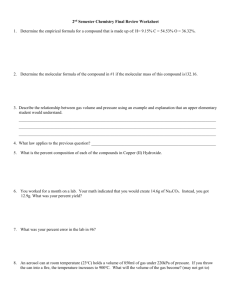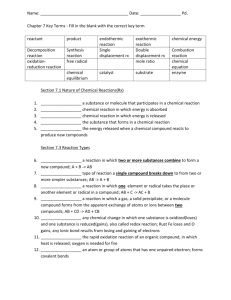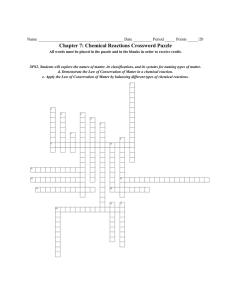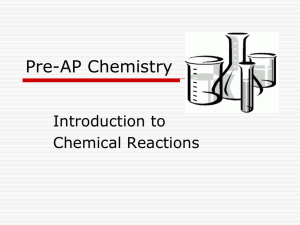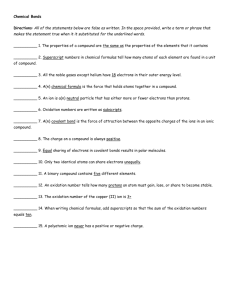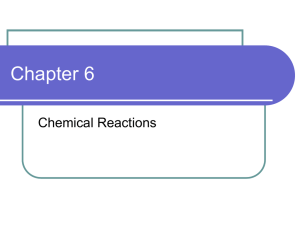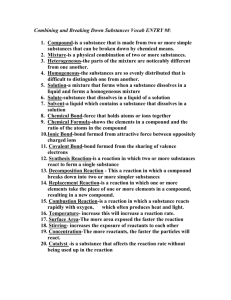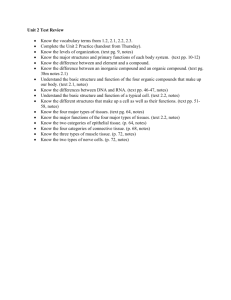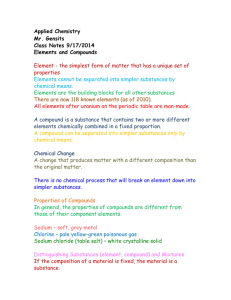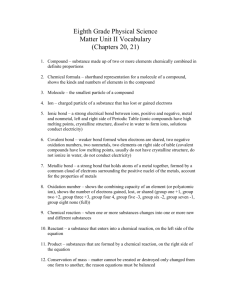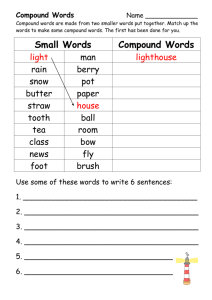Chapter 6
advertisement
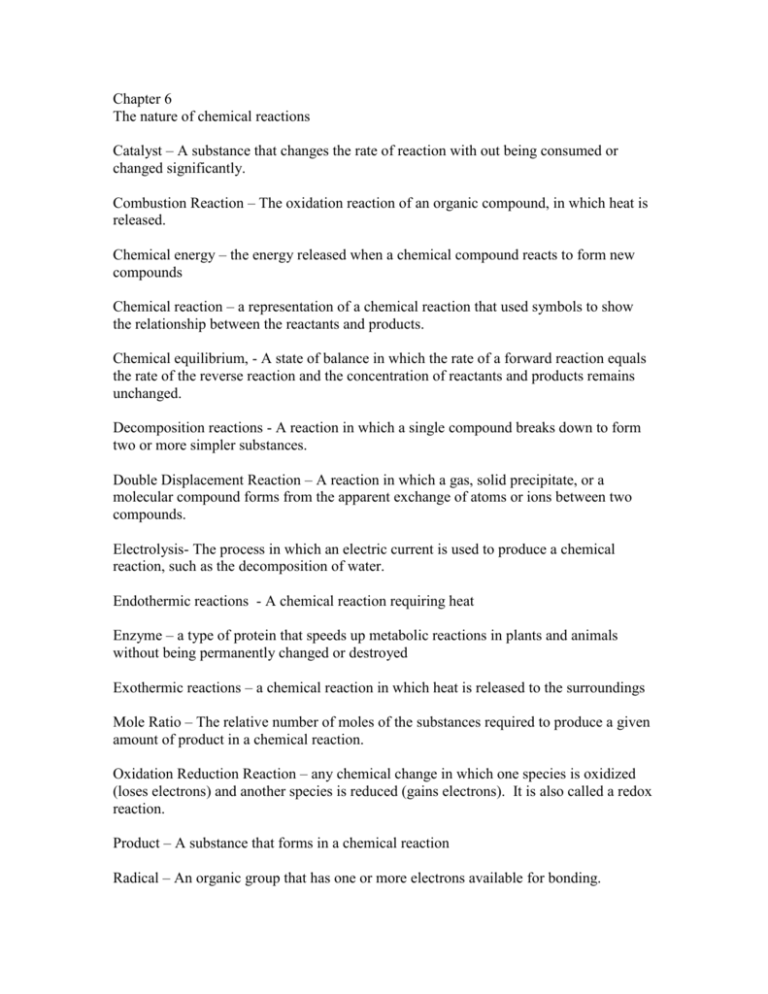
Chapter 6 The nature of chemical reactions Catalyst – A substance that changes the rate of reaction with out being consumed or changed significantly. Combustion Reaction – The oxidation reaction of an organic compound, in which heat is released. Chemical energy – the energy released when a chemical compound reacts to form new compounds Chemical reaction – a representation of a chemical reaction that used symbols to show the relationship between the reactants and products. Chemical equilibrium, - A state of balance in which the rate of a forward reaction equals the rate of the reverse reaction and the concentration of reactants and products remains unchanged. Decomposition reactions - A reaction in which a single compound breaks down to form two or more simpler substances. Double Displacement Reaction – A reaction in which a gas, solid precipitate, or a molecular compound forms from the apparent exchange of atoms or ions between two compounds. Electrolysis- The process in which an electric current is used to produce a chemical reaction, such as the decomposition of water. Endothermic reactions - A chemical reaction requiring heat Enzyme – a type of protein that speeds up metabolic reactions in plants and animals without being permanently changed or destroyed Exothermic reactions – a chemical reaction in which heat is released to the surroundings Mole Ratio – The relative number of moles of the substances required to produce a given amount of product in a chemical reaction. Oxidation Reduction Reaction – any chemical change in which one species is oxidized (loses electrons) and another species is reduced (gains electrons). It is also called a redox reaction. Product – A substance that forms in a chemical reaction Radical – An organic group that has one or more electrons available for bonding. Reactant – a substance or molecules that participates in a chemical reaction. Single Displacement Reaction – A reaction in which one element or radical takes the lace of another element or radical in a compound. Substrate - A part, substance or element that lies beneath and supports another part, substrate, or element; the reactant in reactions catalyzed by enzymes Synthesis Reaction – a reaction in which two or more substances combine to form a new compound.
